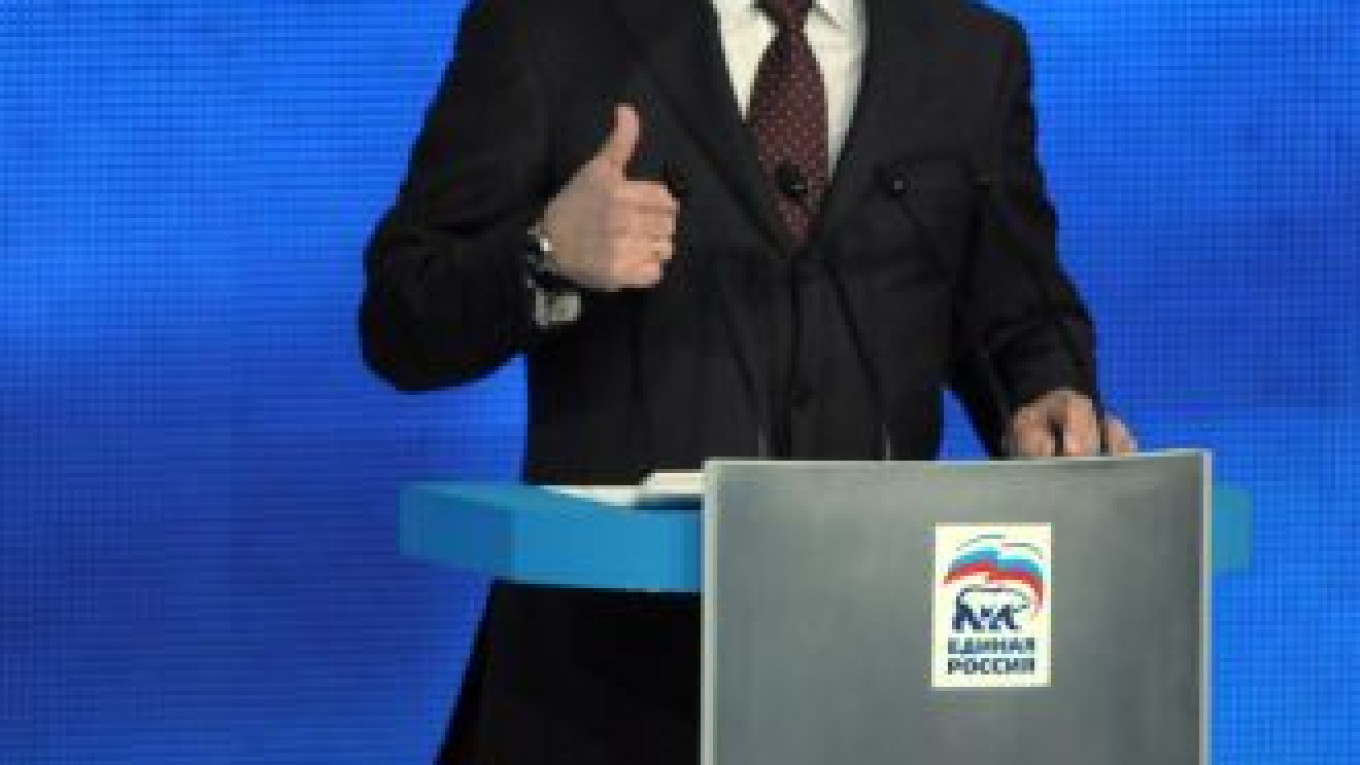Russians are split on how long Vladimir Putin will remain president, a survey said Friday, but few believe he will consider the interests of the middle class, whose discontent has fueled mass opposition protests.
Thirty-eight percent of respondents said Putin, who will be sworn in on May 7, will step aside when his term ends in 2018, while 39 percent said he would serve at least two terms, according to the independent Levada Center pollster.
Of the 39 percent, 29 percent said Putin would serve until 2024 and 10 percent said he would remain president "as long as he wants."
Six percent predicted that Putin wouldn't last until 2018, saying he probably would only be able to hold onto power for the next two to three years.
Levada deputy head Alexei Grazhdankin said Russians are growing increasingly fatigued with Putin and President Dmitry Madvedev and would like to see a new face among viable presidential candidates, Kommersant reported on its website. But, he said, voters are willing to live with Putin as long as Russia remains untouched by economic turmoil and no strong contenders appear who could unseat him.
The survey also found that only 16 percent of Russians think Putin will pay attention to the interests of the middle class, which was the driving force behind the mass opposition protests ignited by the State Duma elections in December. Ordinary Russians, the intelligentsia, and the cultural and scientific elite are also expected to get short shrift, with 11 percent of respondents saying Putin would base his work on their needs.
Instead, 47 percent of Russians think Putin will base his work on the security services.
But Putin will be forced to cooperate with people outside his inner circle, including governors and other members of the political elite (44 percent of respondents said), oligarchs, bankers and other business leaders (39 percent), bureaucrats (27 percent) and company directors (25 percent).
The survey, which questioned 1,600 people in 45 regions in late April, found that 50 percent of Russians believe that Putin's election to a third term was in line with "the spirit and the letter of the Constitution," while 32 percent disagreed.
Nearly half of respondents were optimistic that the country would experience more open politics and a public discussion of the government's actions, while 38 percent predicted "intrigue" and politics defined by a narrow circle.
No margin of? error was given for the poll, whose results were released by Interfax and Kommersant but not available on Levada's website. Previous Levada surveys have put the margin of? error around 3.4 percentage points.
A Message from The Moscow Times:
Dear readers,
We are facing unprecedented challenges. Russia's Prosecutor General's Office has designated The Moscow Times as an "undesirable" organization, criminalizing our work and putting our staff at risk of prosecution. This follows our earlier unjust labeling as a "foreign agent."
These actions are direct attempts to silence independent journalism in Russia. The authorities claim our work "discredits the decisions of the Russian leadership." We see things differently: we strive to provide accurate, unbiased reporting on Russia.
We, the journalists of The Moscow Times, refuse to be silenced. But to continue our work, we need your help.
Your support, no matter how small, makes a world of difference. If you can, please support us monthly starting from just $2. It's quick to set up, and every contribution makes a significant impact.
By supporting The Moscow Times, you're defending open, independent journalism in the face of repression. Thank you for standing with us.
Remind me later.


